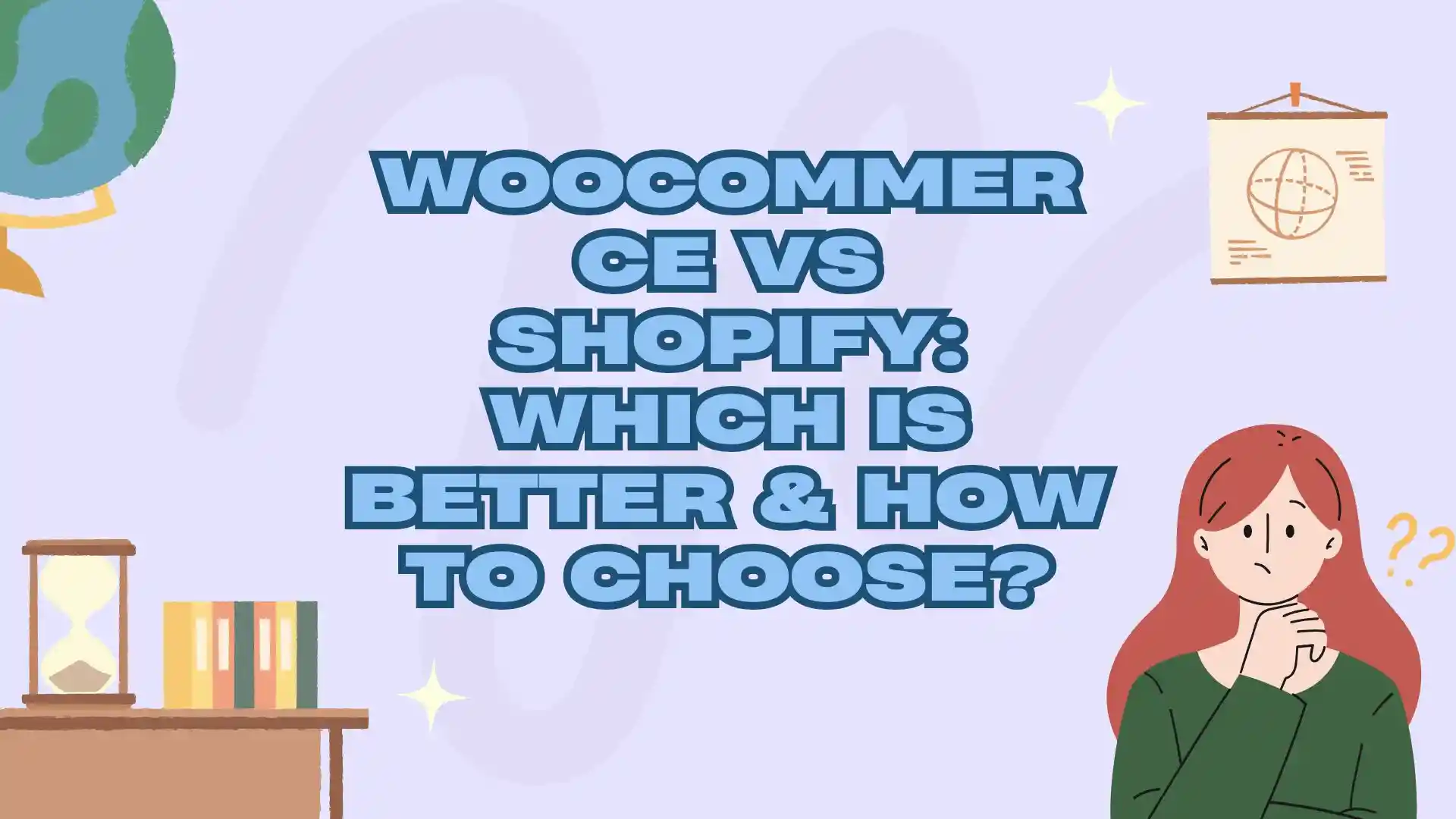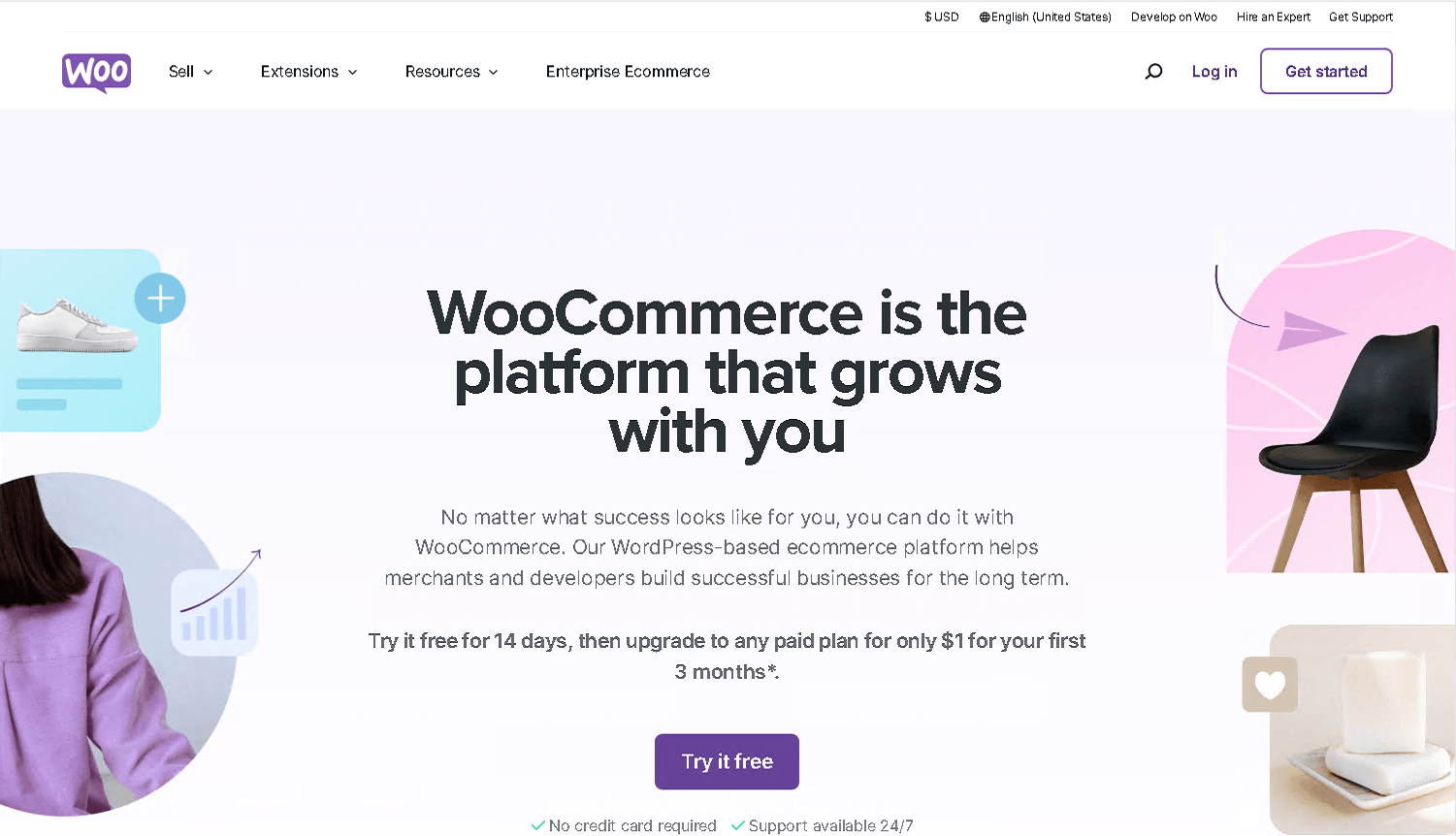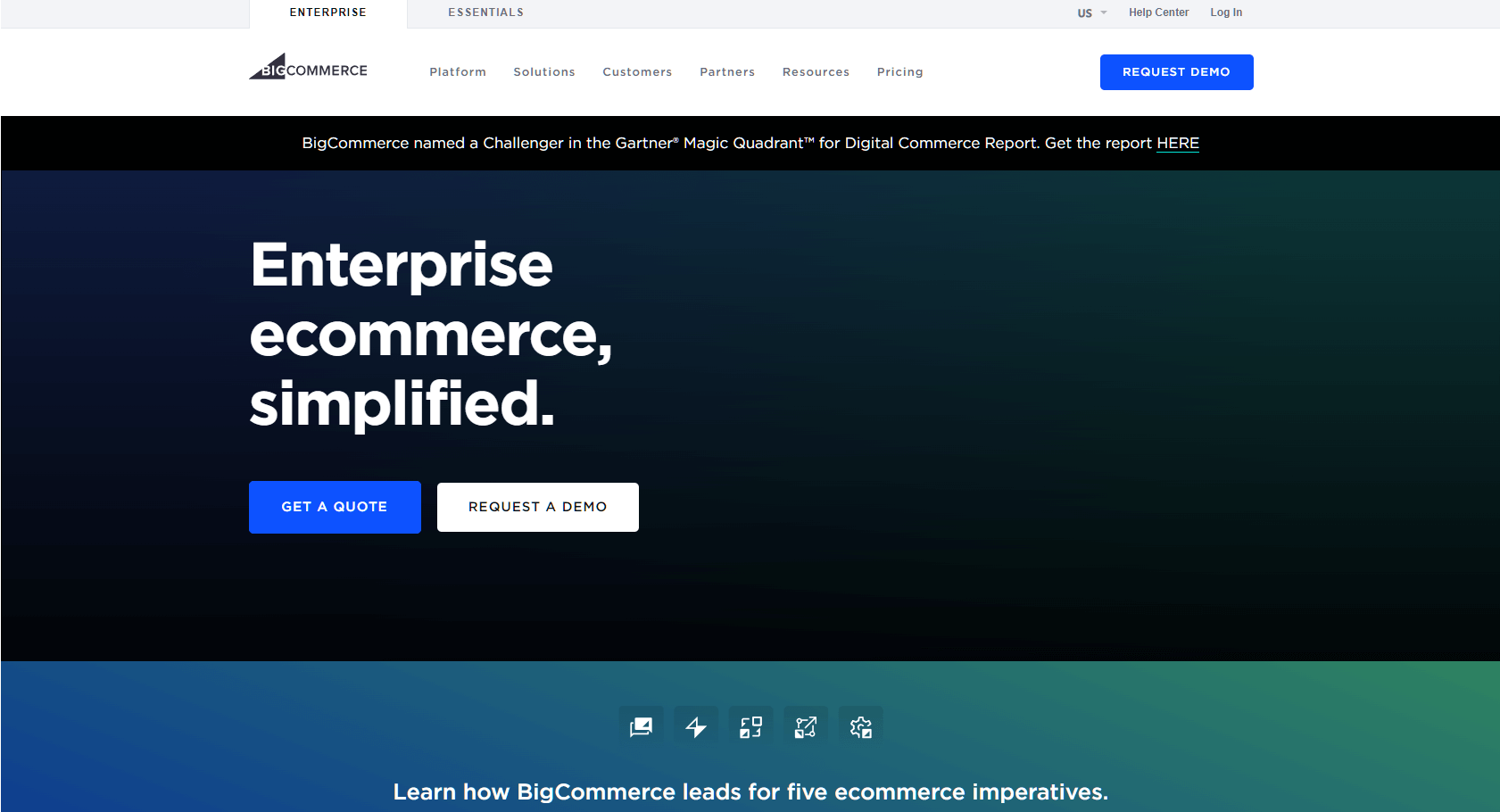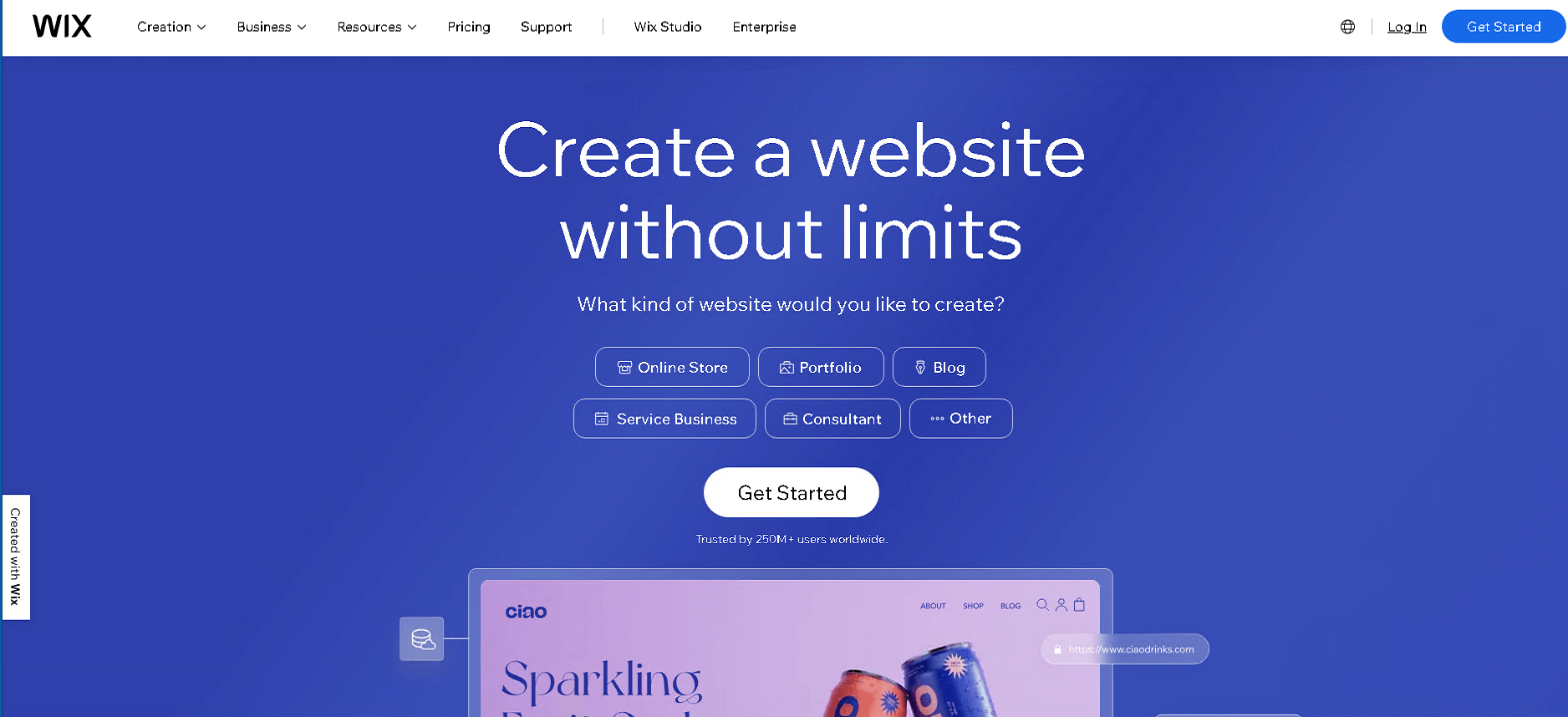
Are you grappling with the decision of choosing between WooCommerce and Shopify for your online business in 2026? You're not alone. Many entrepreneurs face this dilemma, feeling the pressure to pick the platform that will fuel their growth and streamline their operations. In our comprehensive comparison 'WooCommerce vs Shopify 2026: Which is Better & How to Choose?', we dissect the strengths and weaknesses of each, providing you with clear insights to quell the confusion and guide you towards the best choice for your unique business needs. Say goodbye to decision paralysis and hello to informed, strategic planning with our expert analysis.
What Is WooCommerce?

In the dynamic realm of e-commerce, where making the right choice is crucial for success, WooCommerce emerges as a standout. It's an open-source, fully customizable platform designed for WordPress. This integration not only offers the reliability and robustness of WordPress but also provides unparalleled flexibility through access to a wide array of plugins and themes. It's the go-to solution for entrepreneurs, small business owners, and even large corporations looking for a tailored online store presence.
WooCommerce caters to a diverse range of business needs and scales effortlessly as your business evolves. Whether you're a solo artist, a growing brand, or a well-established organization, WooCommerce's user-friendly interface, combined with its powerful analytics and SEO capabilities, ensures your online store is not just operational but also thriving in the competitive digital marketplace. Embrace WooCommerce, and take your e-commerce ambitions to new heights.
What Is Shopify?

Navigating the e-commerce world can be daunting, especially when trying to find a platform that is both user-friendly and feature-rich. This is a common hurdle for entrepreneurs, small business owners, and creatives alike, who need a solution that balances ease of use with comprehensive functionality. The challenge intensifies for larger organizations and influencers, who require a system capable of handling high traffic volumes and complex inventory without sacrificing design and customer experience.
This is where Shopify comes in as a game-changer. Known for its straightforward interface, Shopify serves businesses of all sizes, from individuals just starting out to multinational corporations. It's more than just a platform for building an online store; it's a complete e-commerce ecosystem. With its extensive app marketplace, Shopify allows you to customize your storefront to meet specific needs. Whether you are a dropshipper, a growing brand, or a well-established enterprise, Shopify's scalable infrastructure, intuitive design tools, and powerful analytics ensure that your online store is not only operational but also thriving in today's competitive digital market.
What Are the Pros and Cons of WooCommerce and Shopify?
Choosing between WooCommerce and Shopify can be a pivotal decision for anyone venturing into the online retail space. Both platforms offer unique advantages and limitations that are crucial for businesses of all sizes - from solo entrepreneurs and artists to large corporations and dropshippers. Understanding these can help you align your business strategy with the platform that best suits your needs.
What Are the Pros and Cons of WooCommerce?
WooCommerce is a highly customizable e-commerce platform renowned for its ability to offer significant flexibility through a wide variety of plugins and themes. It stands out for its cost-effectiveness, as there are no subscription fees, but it does necessitate self-hosting, which can be a hurdle for those new to website management. Its capacity for scalability is impressive, though it may require a certain level of technical know-how, especially when it comes to integration with other systems and tools. Users are responsible for maintaining the security and performance of their online stores, which involves staying on top of updates and integrating security protocols. This platform is well-suited for entrepreneurs seeking a personalized online store experience who are also prepared to engage with its technical elements, including the seamless integrationof various functionalities.
| Pros | Cons |
|---|---|
| Highly customizable, integrates seamlessly with WordPress. | Requires self-hosting, which can be complex for beginners. |
| Offers a wide range of plugins and themes. | Can be resource-intensive, affecting site speed. |
| Ideal for those already familiar with WordPress. | SEO optimization requires additional plugins. |
| No subscription fees; cost-effective for startups. | Security and maintenance largely depend on the user. |
| Strong community and developer support. | Scaling up might require technical expertise. |
What Are the Pros and Cons of Shopify?
Shopify is renowned for its user-friendly interface, making it a go-to for beginners. As a hosted solution, it relieves users from the complexities of site maintenance and security. Although customization options are limited compared to WooCommerce, it offers numerous apps and integrations. The platform operates on a subscription model, which can be costlier, and using non-Shopify payment gateways incurs additional fees. Shopify's scalability and strong security features make it ideal for businesses of all sizes seeking a hassle-free e-commerce platform.
| Pros | Cons |
|---|---|
| User-friendly interface, ideal for beginners. | Less customizable compared to WooCommerce. |
| Hosted solution - no worries about site maintenance. | Monthly subscription fees can add up. |
| Offers a vast array of apps and integrations. | Transaction fees unless using Shopify Payments. |
| Strong security features and regular updates. | Limited SEO capabilities without third-party apps. |
| Scalable for businesses of all sizes. | Themes can be costly, especially premium ones. |
Differences Between WooCommerce and Shopify
When deciding between WooCommerce and Shopify, it's crucial to understand their differences in key areas. Both platforms cater to a wide range of users, from entrepreneurs and small business owners to large corporations and dropshippers. However, their approach to usability, pricing, features, and more can significantly impact your decision. This comparison aims to shed light on these platforms in various critical aspects, helping you choose the one that aligns best with your business goals and operational style.
| Aspect | WooCommerce | Shopify |
|---|---|---|
| Usability | Requires familiarity with WordPress; more learning curve. | Extremely user-friendly; great for beginners. |
| Pricing and Fees | Free to install; costs associated with hosting, themes, and plugins. | Monthly subscription fees; additional fees for using non-Shopify payment gateways. |
| Features | Extensive customization with plugins; ideal for those who need specific functionalities. | Out-of-the-box features suitable for most e-commerce needs. |
| Scalability | Scalable but may require technical expertise. | Easily scalable, handles high volume traffic well. |
| Security | User is responsible for security and backups. | Offers strong security features and regular updates. |
| Payments | Supports various payment gateways with additional plugins. | Integrated Shopify Payments; supports other gateways with fees. |
| Dropshipping | Compatible with dropshipping plugins. | Native support for dropshipping with apps like Oberlo. |
| Inventory Management | Advanced management with plugins. | Built-in features for inventory management. |
| SEO Friendliness | High with the right plugins and tweaks. | Decent but can be limited without third-party apps. |
| Plugins and Integrations | Vast WordPress plugin library. | Extensive app store with numerous integrations. |
| Help and Support | Community support; depends on plugins/themes for specific help. | 24/7 support through various channels. |
| Shipping Methods | Customizable with plugins. | Comprehensive shipping solutions with Shopify Shipping. |
WooCommerce vs Shopify: Which One Is Better for Your Online Business?
As you weigh the scales between WooCommerce and Shopify for your online business, consider the voices of those who've walked this path before. Customer reviews often shed light on the nuances that aren't immediately apparent from feature lists and pricing charts.
Entrepreneurs with a DIY spirit tend to rally behind WooCommerce, drawn to its open-source nature that promises a world of customization. They speak of cost savings through one-time plugin purchases and the joy of no transaction fees. Yet, they also caution about the need for technical prowess to navigate this freedom—something not every business owner has in spades.
Shopify, meanwhile, receives accolades for its out-of-the-box convenience. Users praise its straightforward setup and the peace of mind that comes with included hosting and security. The higher price tag and transaction fees are noted, but so is the time saved—a resource just as precious as cash for busy business owners.
Gathering insights from these reviews provides a clearer picture: WooCommerce suits those who want intricate control and have the technical skills to manage it, while Shopify is ideal for those seeking an easy, comprehensive package. Your decision hinges on which set of benefits aligns best with your business goals and personal expertise.
User Sentiment:
Preference for WooCommerce vs. Shopify
Users have strong opinions about WooCommerce and Shopify, with some favoring WooCommerce for its flexibility and control, and others preferring Shopify for its ease of use and customer support.
Cost and Maintenance
WooCommerce is generally seen as more cost-effective in the long run, but it requires more technical knowledge and maintenance. Shopify is considered more expensive due to monthly fees and transaction costs, but it offers an easier setup and less maintenance.
Technical Aspects and Support
WooCommerce users need to manage their own hosting and security, which can be challenging, while Shopify users benefit from included hosting and security, albeit at a higher cost.
Flexibility and Customization
WooCommerce is praised for its high degree of customization and control, while Shopify is seen as having limited customization options but a user-friendly interface.
User Reviews (Selected Excerpts):
pruthv: "As someone who moved from WC to Shopify and back to WC, I can tell you WC is way better in all aspects. Biggest con of Shopify was, it is damn costly. From themes to custom solutions to even simple features like adding FAQs. Plus, mostly everything is on subscription, which I found ridiculous. Mostly everything on WC can be gained for free if you take some time to research. Even I found that Shopify customer care is not very helpful if your ecommerce has slightest customization, plus it has its own learning curve, though may seem simple but you have to see videos and read articles to find out which option is where. You can spend same amount of time in WC and gain more knowledge. Adding to a point here, WC server cost can also be highly reduced if you get shared wp hosting. I pay about $50/year for my multiple websites, while Shopify cost same monthly for only website, you can do further calculations! Not even talking about transaction fees, addon apps, etc on Shopify!"
openxthinking: "Pros of Shopify: User-friendly interface and easy to set up, Hosting and security are included, Wide range of apps and plugins available, 24/7 customer support. Cons of Shopify: Higher transaction fees than some other options, Limited customization options, Dependence on Shopify's ecosystem. Pros of WooCommerce: It's a free, open-source, Plug-ins are 1 time payment usually, More flexibility and control over the design and functionality of your store, No transaction fees (you can chose the payment gateway you want). Cons of WooCommerce: Requires a self-hosted website, Can be more technically to set up and manage, Close to zero support compared to Shopify, Security is on you. If something happens you need to fix it yourself. Shopify is a great option for those who value ease of use and customer support, while WooCommerce is a better choice for those who want more control and flexibility over their store."
Mobile-Sufficie nt: "Woocommerce by a mile. I can see Shopify becoming the PayPal of Ecom platforms… think they are the powers that be, overstepping the mark repeatedly with financial holds, ridiculous fees and ZERO desire for common ground/understanding. Shopify cost me €10,000s of euro and years of my life, due to holding funds for minuscule reasons and didn't want to hear an explanation or try offer a solution… woo commerce understand it's actually YOUR business and not theirs."
Alternatives to WooCommerce and Shopify
While WooCommerce and Shopify are popular choices in the e-commerce platform market, several alternatives cater to varying business needs and preferences. Entrepreneurs, small business owners, and others in the e-commerce sphere often seek platforms that align with their specific requirements, be it in terms of functionality, ease of use, or scalability. Here are some notable alternatives to WooCommerce and Shopify, each with its unique offerings.
BigCommerce

Comprehensive e-commerce features out of the box
No transaction fees
Strong SEO capabilities
Various integrations with third-party apps
Magento

Highly customizable and scalable
Ideal for large businesses with complex needs
Requires development expertise
Robust community and enterprise editions
Wix

User-friendly interface, suitable for beginners
Drag-and-drop website builder
Good range of e-commerce features
Ideal for small to medium-sized businesses
Squarespace

Sleek design templates
Integrated e-commerce tools for small businesses and individual creators
Easy to set up and manage
Limited advanced e-commerce features compared to others
Weebly

Simple drag-and-drop builder
Integrated shopping cart and secure checkout
Ideal for small businesses and entrepreneurs
Limited scalability for larger businesses
Conclusion
Choosing between WooCommerce and Shopify is a pivotal decision that can significantly shape the trajectory of your online business. This choice is not just about selecting a platform; it's about choosing a partner for your entrepreneurial journey. Each platform has its strengths and caters to different business needs, from solo artists and small enterprises to large corporations and dropshippers. WooCommerce offers unparalleled customization and flexibility, particularly for those already comfortable with WordPress. On the other hand, Shopify stands out for its ease of use and robust, out-of-the-box features, making it a favorite among beginners and businesses looking for a straightforward e-commerce solution.
Ultimately, the decision between WooCommerce and Shopify should be guided by your specific business requirements, technical expertise, and long-term goals. Whether you prioritize customization, ease of use, scalability, or a particular set of features, both platforms offer compelling benefits. As the e-commerce landscape continues to evolve, staying informed and adaptable will be key to your success. Remember, the best choice is one that aligns seamlessly with your business model, audience, and growth aspirations.
FAQs
Is Shopify better than WooCommerce?
Choosing between Shopify and WooCommerce depends on your needs. Shopify is user-friendly, offering easy setup and maintenance, making it great for beginners or those who prefer an all-in-one solution. WooCommerce allows for more customization and control, suited for those with WordPress experience and a desire for a more hands-on approach. Shopify simplifies the process, while WooCommerce caters to customization needs. Your decision should be based on your specific business goals and technical expertise.
How much does WooCommerce really cost?
WooCommerce is a free plugin, but running a store incurs costs for hosting, domain, themes, and plugins. Hosting can start from a few dollars monthly, themes may be free or cost over $100, and plugins range from free to premium-priced. Additional expenses might include payment processing and security features. The total cost depends on the scale and needs of your business, potentially starting low but increasing as your store expands.
Is WooCommerce safer than Shopify?
Both WooCommerce and Shopify offer strong security measures. Shopify manages security for you, covering SSL certificates and updates, making it easier for those who prefer less involvement. WooCommerce allows for more control, but you're responsible for implementing security measures like SSL and updates. With proper management, both can be secure; Shopify simplifies security, while WooCommerce requires a more active role. The choice depends on your preference for convenience versus control.










 Global Shipping
Global Shipping






 Made in USA
Made in USA























